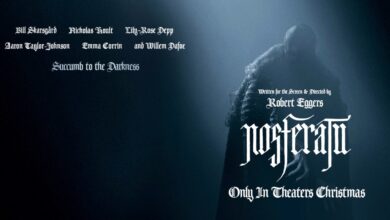Longlegs Movie Review: The Most Disturbing Horror of the Year?
Longlegs Movie Review: Longlegs has been talked about for a long time even before its release. The news about the new horror film written and directed by Oz Perkins immediately attracted attention to the project, thanks to the director’s family origins (his father is Anthony Perkins, the Norman Bates of Psycho) and a pressing marketing campaign that immediately highlighted the involvement of Nicolas Cage in a role that seems destined to leave its mark on the history of the genre. With premises like that, expectations were quite high, foretelling what could have been “the definitive horror experience of the year”, at least according to what was anticipated in the promotional phase. Was it like that? Longlegs, available in theaters from October 31, 2024, is a film that feeds on the big screen, the movie theater, and silence, the darkness. At its core, we find a story that deeply investigates some human dynamics that are familiar and close to everyone, questioning their moral solidity through a morbid and suffocating exchange that involves a serial killer and the person who is hunting him.
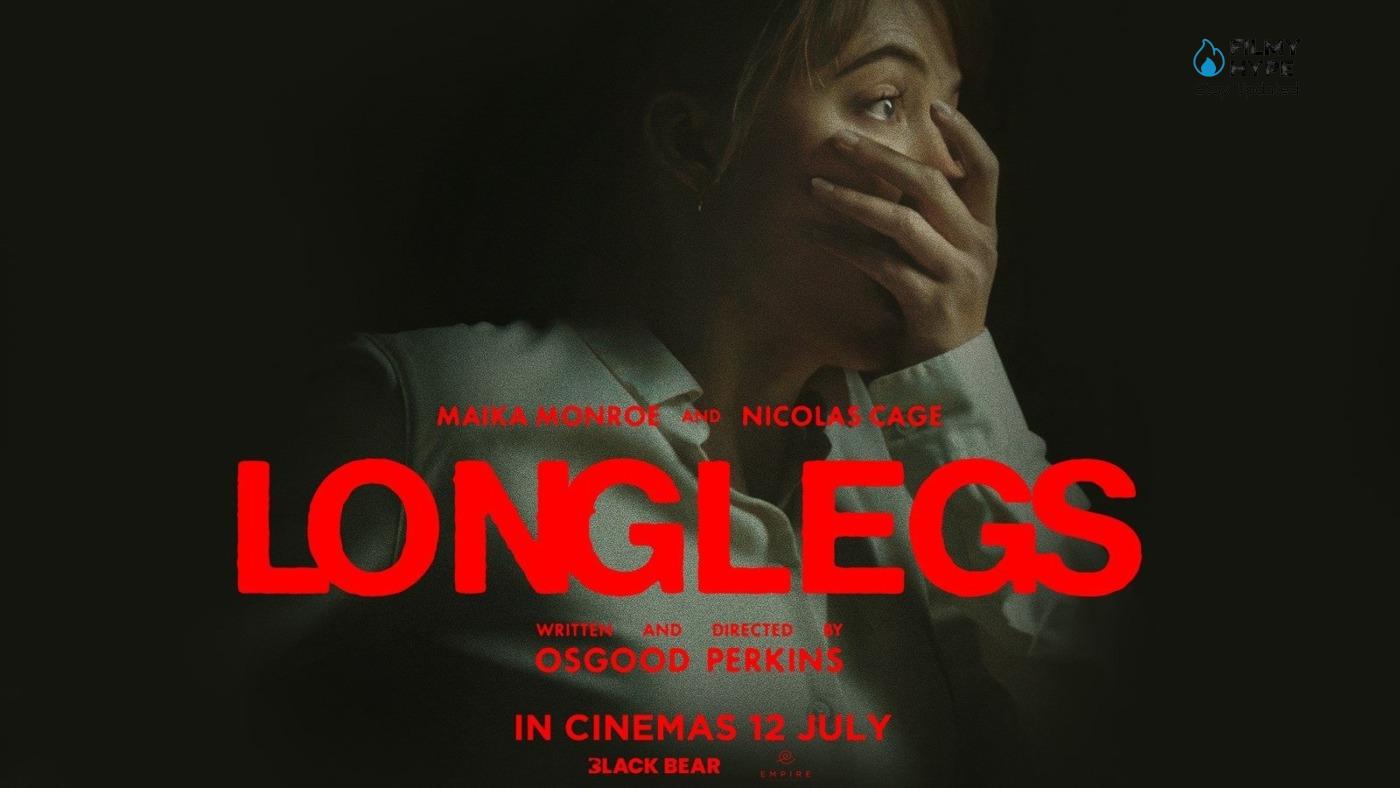
While the latter tries to find an order and a connection between the inhuman events along the way, to get closer to that darkness that not everyone would be able to face. In this, Longlegs immediately ties in with the narrative imagery of other similar feature films, closely recalling works such as The Silence of the Lambs by Jonathan Demme, or Seven and Zodiac by David Fincher, to give some easily understandable examples. Sublimating the horror on the screen into an investigation that is both intimate and disturbing, the film speaks directly to the audience, feeding on their own beliefs and then reworking their hypothetical credibility right on the big screen. From investigation to horror, therefore, from recognizable to disturbing and distressing.
Longlegs Movie Review: The Story Plot
It’s the 90s, and the young FBI agent Lee Harker (Maika Monroe) shows extraordinary perceptive skills, a sort of sixth sense that will prove crucial in solving an investigation. Discovering these abilities, the agency immediately assigns the detective one of the most disturbing and cryptic cases of the last 30 years: a chain of 10 brutal murder-suicides, where it seems that the heads of families have been persuaded by someone to exterminate their wives and children, before ending their own lives. At each crime scene, enigmatic coded messages have been left, similar to those sent to the authorities by the serial killer Zodiac; they all seem to be written by the same hand and bear the same signature: Longlegs (Nicolas Cage, also the film’s producer). As the investigation progresses, Harker gets closer and closer to the mysterious figure, in a slow, yet unstoppable, descent into the territory of nightmare.
A petite and disoriented rookie detective finds herself immersed in a world populated by monsters, an investigation that is dangerous both for her safety and her sanity. In short, the premise of Longlegs closely resembles that of The Silence of the Lambs, a similarity also strengthened by the historical period in which the story is set. But the parallels with the literary world created by Thomas Harris and embedded in the collective imagination by Jonathan Demme’s film of the same name, do not stop there. In the character of Harker, we can find not only characteristics of agent Clarice Starling, but also of her predecessor Will Graham, a brilliant profiler with abilities bordering on extrasensory perception, brought to the screen both in Manhunter and Red Dragon, but also in the TV series Hannibal. The story of Longlegs introduces us to an investigation that has been ongoing in America for a long time.
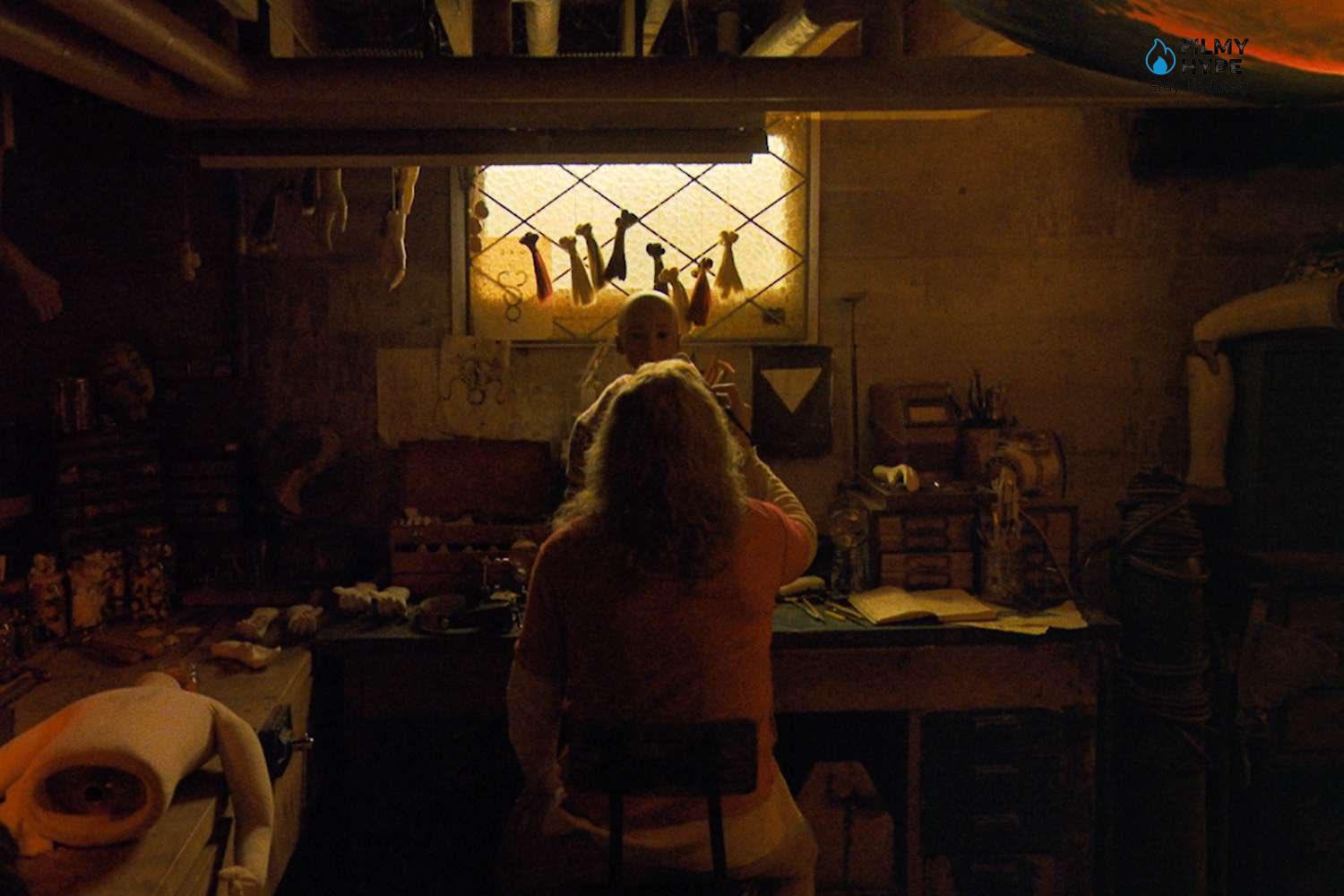
It seems that some brutal domestic murders/suicides, without any explanation, find a mysterious connection in some messages left on the spot by a mysterious “Longlegs”. Those sheets of paper, however, do not say anything more about the terrible events in the private lives of these families, presenting themselves through a coded language that awaits to be decoded. Marking a possible turning point in the investigation, which has been at a standstill for some time now, we find Special Agent Lee Harker (Maika Monroe), who becomes personally involved due to her particular gift: a sort of psychic sixth sense that allows her to see and feel beyond appearances and things. What happens to these families has something methodical that has attracted the attention of the FBI, in addition to the aforementioned coded messages: it is always the fathers of the family who eliminate all the other members present in the house and then take their own lives. Materially, therefore, the connection with Longlegs (Nicolas Cage) does not exist, and yet a dark and sinister shadow seems to act in the background compared to what we learn and know at first glance.
Longlegs Movie Review and Analysis
As anticipated, Longlegs is a film that directly involves first of all a thriller with a very bitter taste, laying the foundations for a police investigation strongly connected to the characters at the center of the action. Lee, herself immediately becomes a fundamental element in the balance of a story that passes through her and her gaze, from the way she elaborates on the reality that surrounds her to then delving into the reasons, even intimate ones. In the search for an indecipherable monster, therefore, we find a particular and morbid connection with the person who is on his tail, in a game of symbolism, indirect messages, and attempts to rework a reality that escapes any logic. The dynamics of a feature film that captures strong images and references in this sense are stirred between the folds of a protagonist who is difficult to identify from the start. From the narration to the direction itself by Oz Perkins, who sublimates the dark essence of the story with a figurative construction that is always careful and suffocating.
This is thanks to specific choices in terms of camera angle, staging, scenography, and photography. What the dialogues avoid expressing directly comes through the images of a context that is always dark, dry, and isolated, never reassuring but cold and bare, inhospitable. Lee Harker moves in environments that seem to get closer to her, gradually squeezing her in a grip that is also felt beyond the big screen. In the composition of such a world, we see the doubts of recognizable research creep in, in terms of narrative scheme, but still of excellent quality in its presentation to the general public. Where the murky mystery moves, escaping all reason, however, Longlegs inserts an analysis that touches everyone closely, questioning the most classic principles of the family nucleus, understood as a safe nest and inaccessible to the outside world.
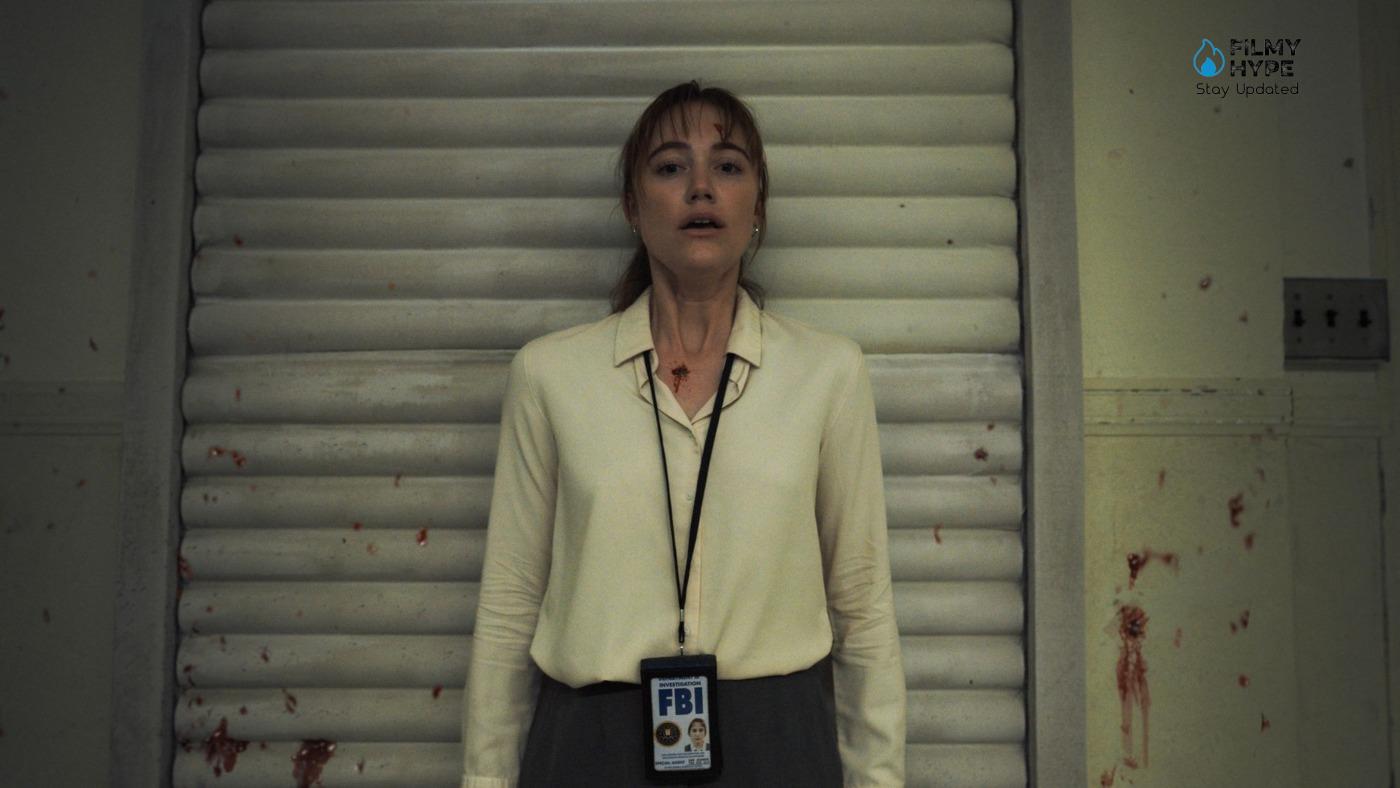
From the vast macro of America to the unreachable micro of parental love, questioned by the blood of some massacres that, as events progress, soon leave the dimension of the thriller to fully embrace that of esoteric horror. Here in the images of Longlegs, it becomes possible to identify a study other and more indirect than the more classic detective mysteries, embracing some reflections that range from the loss of childhood innocence to the insinuation of shadows within the daily life of a world that is always and in any case ours. In all this, the performances of a cast that works great stand out, returning some moments that leave their mark. In addition to the talent of Maika Monroe bursting into the construction of a protagonist continually suspended and broken by a wound that torments her deeply, it is Nicolas Cage’s character that leaves you almost speechless. This initially strikes with its aesthetics and, later, with a series of moments and interpretations that go beyond the fiction of the big screen.
In his lost but fixed gaze and his very pale skin, you can see the roots of an evil that anguishes and torments, rationing the moments of a mask that will surely remain imprinted for a long time. With minimalism in the shooting, the scenography, and above all in the editing, the director creates a suspended, yet real world. By investing the investigations of the young protagonist Lee Harker (Maika Monroe, already appreciated in It Follows and Watcher) with a blood-red filter, Perkins manages to emphasize the sense of an impending threat. He does this by alternating a solitary (and at times dissociated) Harker with a monochromatic sepia yellow that burns everything, like an overexposed photograph, making the surrounding environments receptacles of an empty, chilling microcosm, where the shadows are not emphasized but almost neutralized, making everyone ghosts of the afterlife ready to succumb to the kingdom of the living.
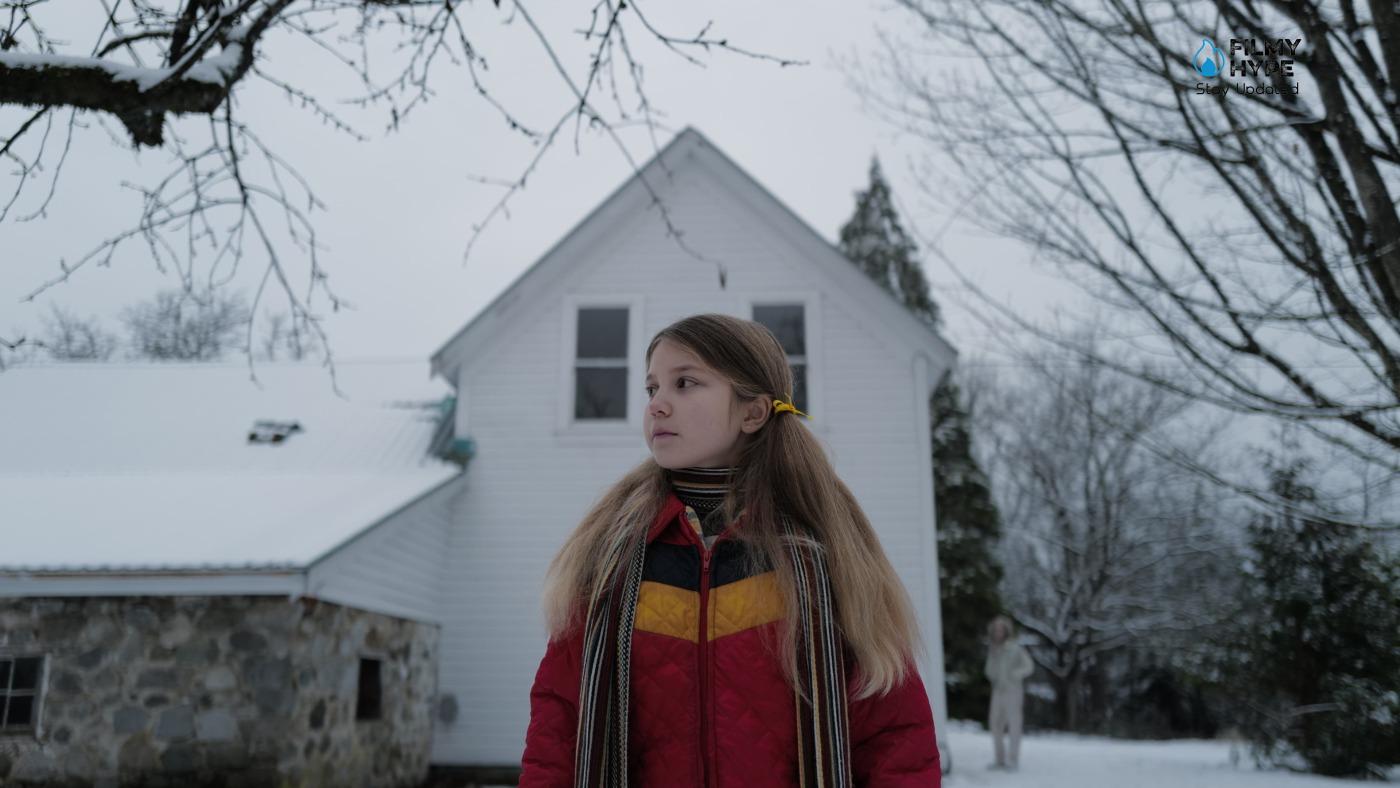
At times hallucinogenic, at others labyrinthine, Longlegs cannot avoid falling into a certain predictability that weakens its anguishing impulse. Eager to load his creature with a pervasive uneasiness, Perkins frays the thread of the plot, letting it fall into a confusing paroxysm. But then, Maika Monroe’s gaze meets that of the camera, and something magical takes over, capturing the viewer’s attention until it becomes his own, pushing him into a vortex where horror gives way to psychological thriller. And the one who plays the star of an unstable mind, ready to give in to the Mephistophelian presence of his Longlegs, is none other than Cage, who behind the mask of prosthetic makeup manages to invest the space of vision with a sense of unease and restlessness. In perpetual equilibrium between a state of anguish and malaise, Cage’s Longlegs is a glassy-eyed, high-pitched glam rock star who sings not to entertain, or make one dream, but to push the spectator into an ocean polluted by nightmares.
The lack of a beating heart, of a feeling of warmth that embraces and heals everything, is a shared curse that Perkins manages to translate visually thanks to an intelligent game of fixed shots, and wide-angle lenses ready to deform the reality of Lee and Longlegs, making them all possible monsters; monsters, those of Longlegs who speak, fill the space of vision with a corollary of words, biblical quotes, prayers and curses, where the sacred meets the profane, in a deafening silence. Yes, because in Perkins’ world, music does not find its own space of choice, if not with high-pitched, out-of-tune violins, which announce the advance of fear. And it is a completely internal fear, because it was born within the character of Lee Harker, a sharp mind, but an apathetic soul, blocked in the traumatic legacy of a past ready to ask her to pay the price. And for such an interiority, music cannot light up. Only sigh. Like a mouth blocked in the face of the force of terror.
The story revolves entirely around Maika Monroe’s Lee Harker and Nicolas Cage’s terrible Longlegs. Starting with the latter, the actor gives us one of his most over-the-top performances ever (and since it’s Nicolas Cage, this should be enough to give you an idea of the tenor of his acting). So excessive that at times it is intentionally ridiculous and relies on the viewer’s sensitivity to understand its intentions: what we want to say is that it is not an interpretation for everyone, some will find it so grotesque that it will make them laugh, while others, on the contrary, will be shocked and disturbed. We undoubtedly belong to the second category, in fact during the vision we could not help but imagine ourselves face to face with Cage’s absurd character and, we assure you, outside the welcoming context of a movie theater, nothing he said would have made us laugh. The actor, in giving a unique personality to his character, is aided by heavy prosthetic makeup that distorts his features, probably giving him even more interpretative freedom.
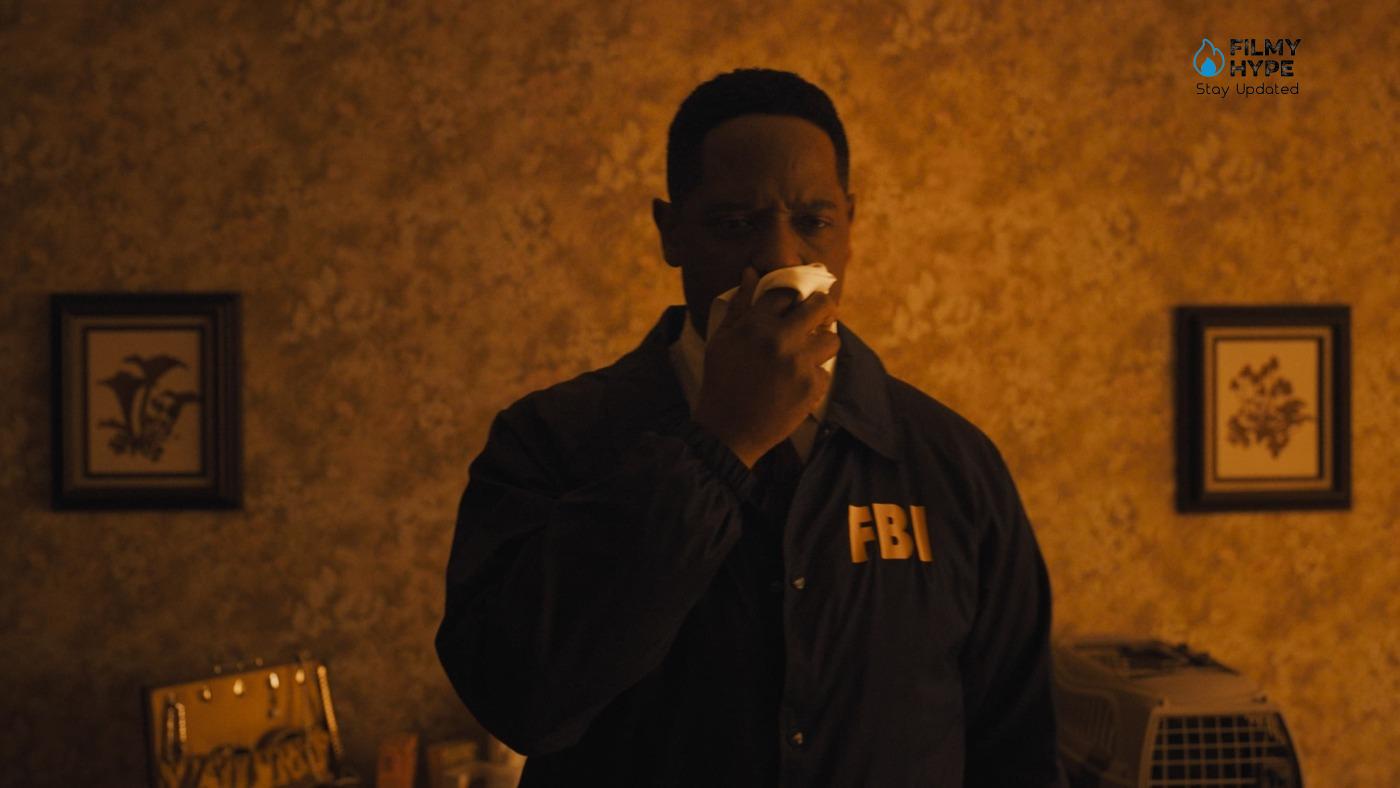
The perfect counterpart to the monstrous Nicholas Cage is Monroe’s young agent, but who equally stands out in the environment that surrounds her for her “anomaly”. Lee is silent, perpetually uncomfortable, sometimes repulsive, brave, and fearful at the same time. Monroe brings her character to life with an acting that is always subtractive, making her movements almost mechanical, her way of speaking slow, constantly doubtful, and restrained. The actress, who is much like Cage is particularly magnetic and is gifted with an excellent stage presence, can highlight even more with the “strangeness” of her character the distressing situation in which we find ourselves, the atmospheres become even more oppressive and dark, even more profoundly terrifying.
Oz Perkins’ direction is capable of building a constant tension, which permeates the film from the beginning to the end. The author continuously uses the fixed camera to crush the characters in the scene, to convey to the viewer the sense of oppressive uneasiness that the protagonist feels. Lee is often at the center of the scene, surrounded by empty rooms from which at any moment something could emerge, dark corners in which unspeakable horrors could hide, but which prefer not to be seen and remain imagined, evoked, and so somehow even more frightening. As we were saying, however, Longlegs is not a film without flaws, once you get to the end of the vision you realize how the story is very rich in elements, themes, and ideas, which are not explored as much as they deserved.
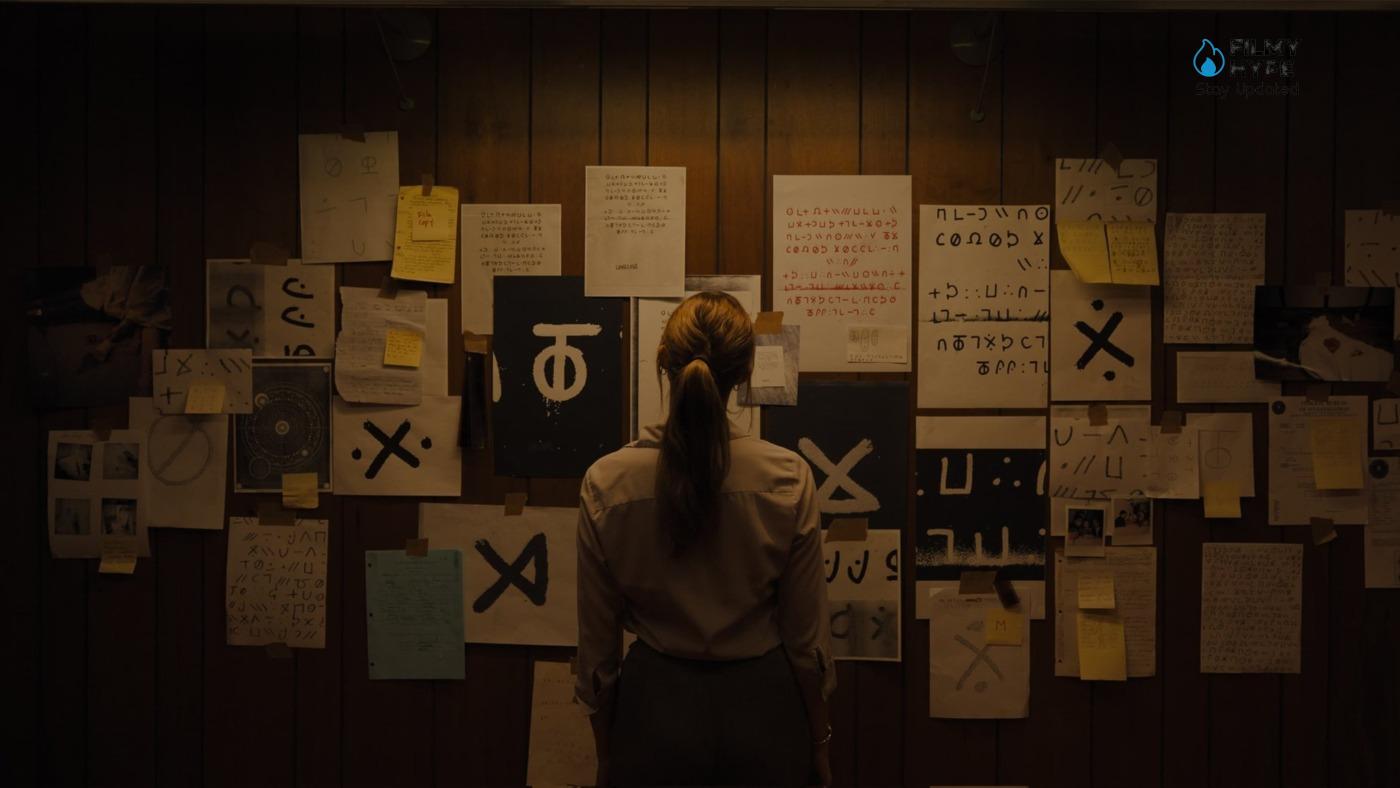
When the supernatural nature of what is happening becomes evident the viewer would like to know more, would like to understand better what is happening on the screen, but everything remains enigmatic, ambiguous, and therefore unsatisfactory. And if the author had too much to say but little time to do it, the ending, although truly impressive, perhaps does not hit as hard as it should because the foundations were not built in the best way previously. That said, however, certain flaws fade into the background in front of the sense of wonder (and perpetual uneasiness) that Longlegs was able to convey to us. It rarely happens nowadays that a horror film is so “different”, or “original”, and this is more than enough to make us appreciate it. We can’t wait to see what Oz Perkins will be able to do with his next film, The Monkey, based on one of Stephen King’s most disturbing stories ever, and if he will be able to give it the same disturbing uniqueness that made Longlegs so special for us.
Longlegs Movie Review: The Last Words
Longlegs is a film that certainly leaves its mark. Developing from a narrative structure easily recognizable by thriller lovers, the feature film written and directed by Oz Perkins uses a bloody mystery to drag you into the most suffocating horror. From an investigation into a killer, the experience of a morbid and intimate anguish develops that is directly reflected on the spectators in the theater, direct witnesses of a very dark journey that finds its dimension and voice both thanks to the formal construction behind the camera and the performances of Maika Monroe and Nicolas Cage. Longlegs is a truly unique horror film, not without its flaws, but it will remain in your head for hours, for days, after you’ve finished watching it.
Cast: Maika Monroe, Nicolas Cage, Alicia Witt and Blair Underwood
Director: Oz Perkins
Where to Watch: In theaters
Filmyhype.com Ratings: 4/5 (four stars)





